On this International Day of Education we recognize the important role that education plays in improving the lives and livelihoods of farmers around the world.
Heifer has a long history of supporting farmers as they join cooperatives to share knowledge, pool resources, and access financing to invest and grow their farms and businesses. Through our Community Mobilization model Heifer has created a framework for building the skills of individuals and communities as they work together to achieve their goals.
Supporting the world’s poorest households to earn a Sustainable Living Income requires attention to the skills and information that are most needed to begin their journey.
For instance, essential literacy skills empower women in remote rural villages, while record keeping and business plan training supports first-time farmers as they start their businesses.
Throughout the training process, individuals and self-help groups are active agents in their own development, implementing what they have learned in their lives as parents and family members, entrepreneurs and cooperative leaders as well as other roles and opportunities opened through training from Heifer.
These efforts are aimed at accelerating progress towards United Nations Sustainable Development Goal 4, which seeks to improve access to education for all.
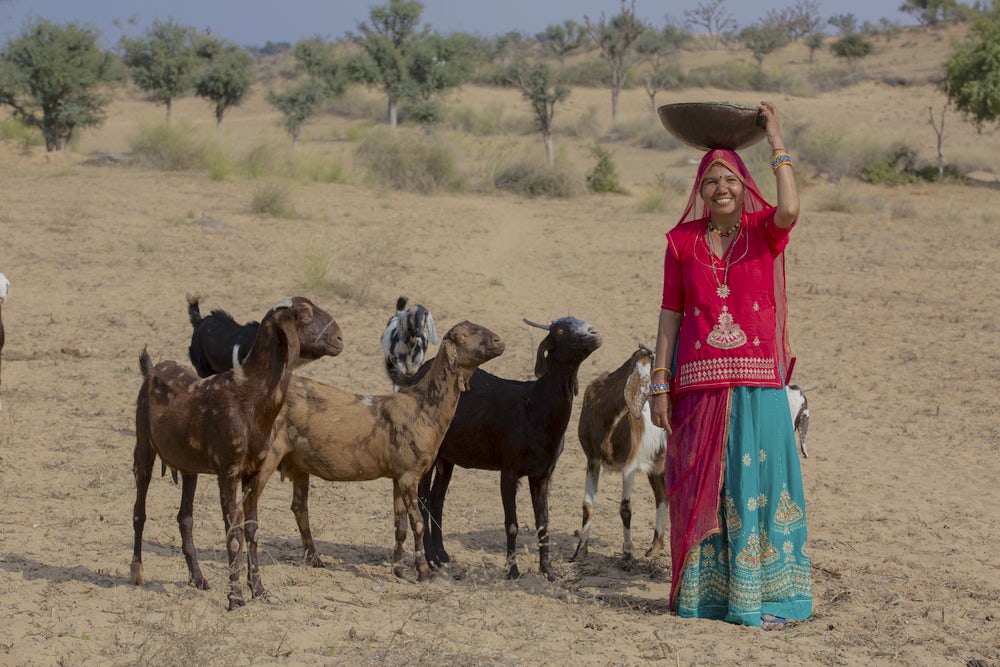
Panchu Devi was married at the age of 17, without the education that she so desperately yearned for.
According to the UN, 258 million children and adolescents — like Devi — around the world do not have the opportunity to enter or complete school. However, they are still expected to take on the roles and responsibilities of adulthood.
One-third of the world’s child brides, who are married before the age of 18, live in India. Girls who are married young are much more likely to be out of school, being wives and mothers.
“I wanted to learn how to write the names of my family members,” said Devi.
In 2013, Devi joined the Heifer India project and learned how to write – and more importantly, rethink the role of girls and women in the household and her community.
Not only did the project seek to empower participants through livestock and agricultural ventures, it also worked to address the sociocultural beliefs and gender norms that hold women like Devi back from aspiring for a better life.
Heifer’s cornerstones training, coupled with a better understanding of livestock management practices allowed Devi to create better economic opportunities for herself by growing the size of her herd of goats and building a business.
She is now carving a new path of hope for herself and her daughters.
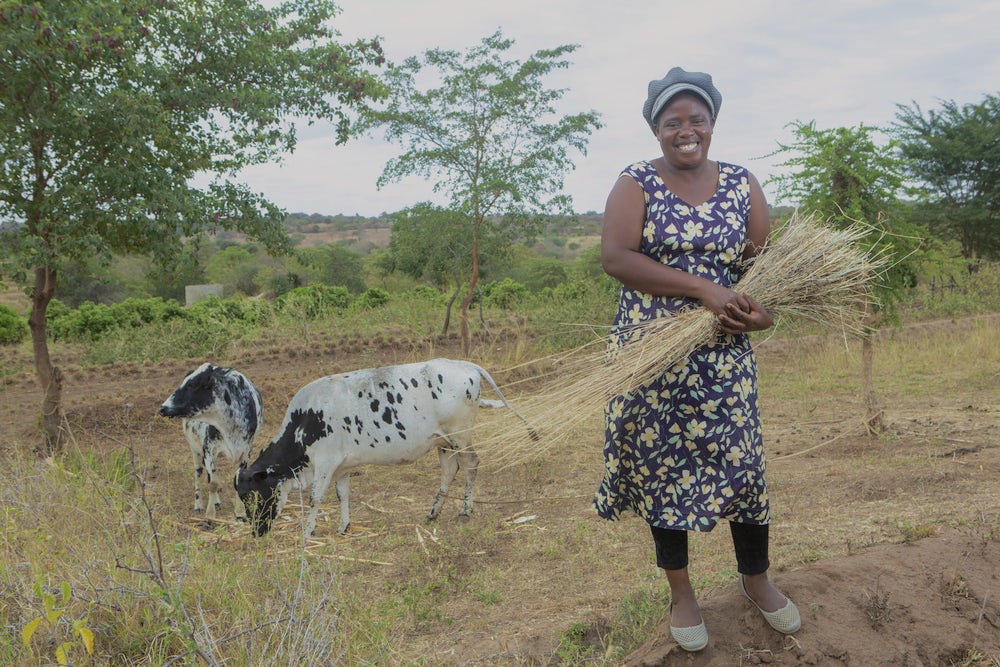
In Kenya, reaching rural farmers is a challenge that has been made more severe by the COVID-19 pandemic.
In-person extension services were an essential service, providing many farmers with access to training, veterinary care, information on animal husbandry and other critical farm extension services that are vital to their success.
But the health risks associated with such meetings are a concern during the pandemic.
Heifer Kenya has supported 30,000 dairy farmers to take their training and extension work remote, to expand access during the pandemic without the threat of spreading the virus.
The Kenya Market-Led Dairy Supply Chain project has piloted this approach to bring critical information and other resources directly to the farmers who need it most during these challenging times.
“Technology is how we can leapfrog,” said Adesuwa Ifedi, Heifer International’s senior vice president of Africa programs. “Young Africans have the power to transform Africa’s agricultural sector, taking up technology to address the problems farmers are facing at the farm level.”
Heifer Kenya is partnering with two technology companies — Farming Tech Solutions Limited and RetailPay — who have built digital applications that provide extension services to farmers on their cellphones.
Farmers receive training on how to use these applications to improve their businesses and livelihoods– all from a safe distance.
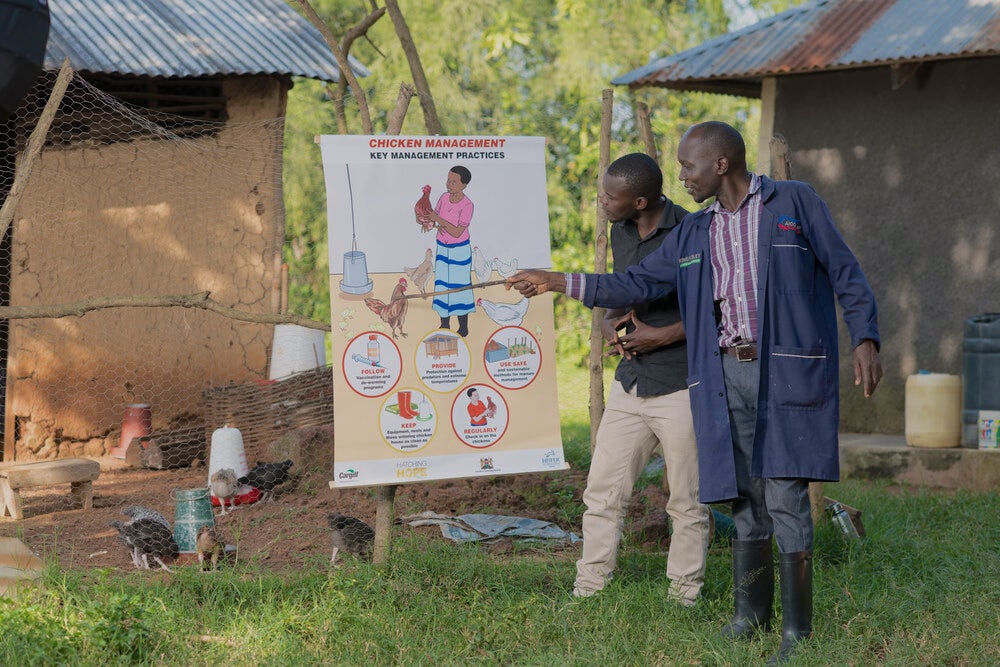
Heifer is inspired by farmers like Victor Odero who took up poultry farming to increase his income.
“I wanted to expand my skills in livestock management,” recalls Odero, who lives in Siaya County in southwest Kenya. “But I also wanted to contribute to my society’s food security.”
The Hatching Hope Kenya project works with poultry farmers to enhance farming practices, improve nutrition and livelihoods. Through an extension services system, farmers — like Odero — received training on recordkeeping; poultry feeding and brooding; animal shelter construction; and livestock health management, like vaccinations and deworming.
These training services provided Odero with key tools and skills to build the strong foundation to start his livestock management journey - and has since grown his flock from 80 chicks to 800. Today, he is raising healthier, stronger birds than he was before, increasing his overall income and supporting his community.
“My vision is to have a bigger farm that can supply enough chicken meat to the market and to the country of Kenya,” said Odero.
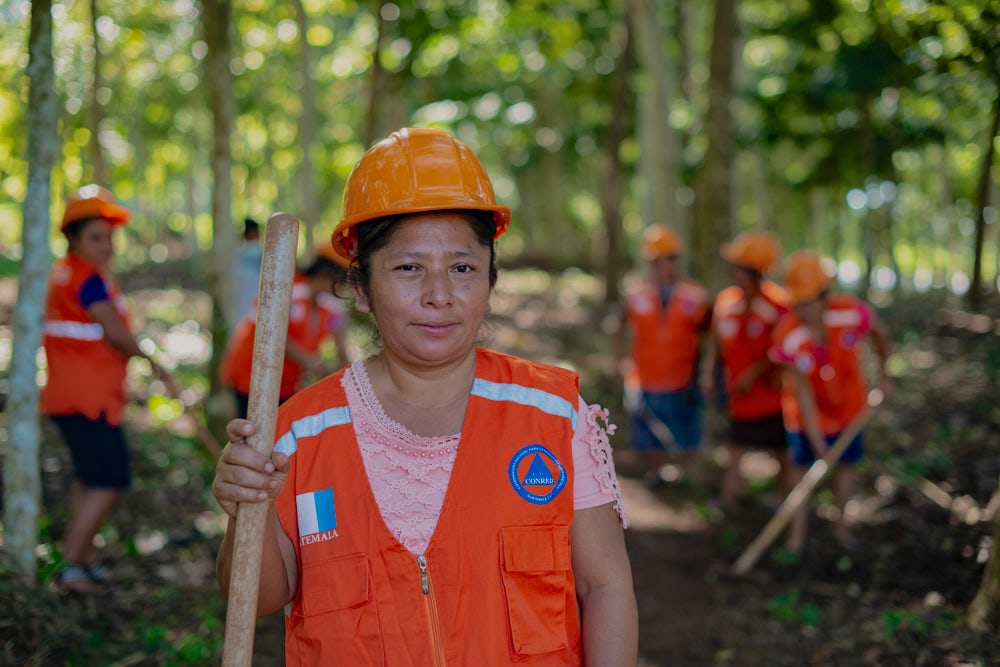
Maria Luisa Vasquez and the women in her community haven’t looked back since they started their own the community disaster reduction committee.
RISE UP, or Resilience Initiatives Through Sustainable Enterprises and Upgrade of Community Preparedness, was a partnership between Heifer International and the Margaret A. Cargill Foundation that prepared vulnerable communities for shocks from disasters.
Vasquez and her team have taken on the responsibility of making sure that disaster preparations are always a priority. The women attended trainings that covered essential disaster relief topics – such as updating emergency response plans, forest fire safety, treating injured victims and sheltering livestock in preparation for disasters.
"So, at that moment we said, ‘We as women will help our community through whatever disaster or problem occurs.’" said Vasquez, who is secretary of the community disaster response committee.
In 2020, when Category 4 Hurricane Ita and Category 5 Hurricane Iota whirled through Guatemala, Vasquez and the committee sprang into action to rebuild and recover their community. Their training allowed them to respond quickly to minimize damage and assess threats like damage to houses. It also allowed them to effectively coordinate with their local municipal government and other agencies to move forward with rehabilitation.
Now that they’ve had success, Vasquez and her team are even more empowered. “We said, ‘we want to do this.’ And as of today, we’re still standing, fighting to take care of our community,” she explained.
When the COVID-19 pandemic forced markets to close and cities to shut down across India, Budhini Hansda and her husband Barial turned to their kitchen garden to provide their family with a reliable food source and an income.
They started their garden after receiving training from Heifer India on gardening and nutrition as well as poultry keeping. “After training, my husband and I worked together on a bigger kitchen garden to cultivate vegetables,” she said.
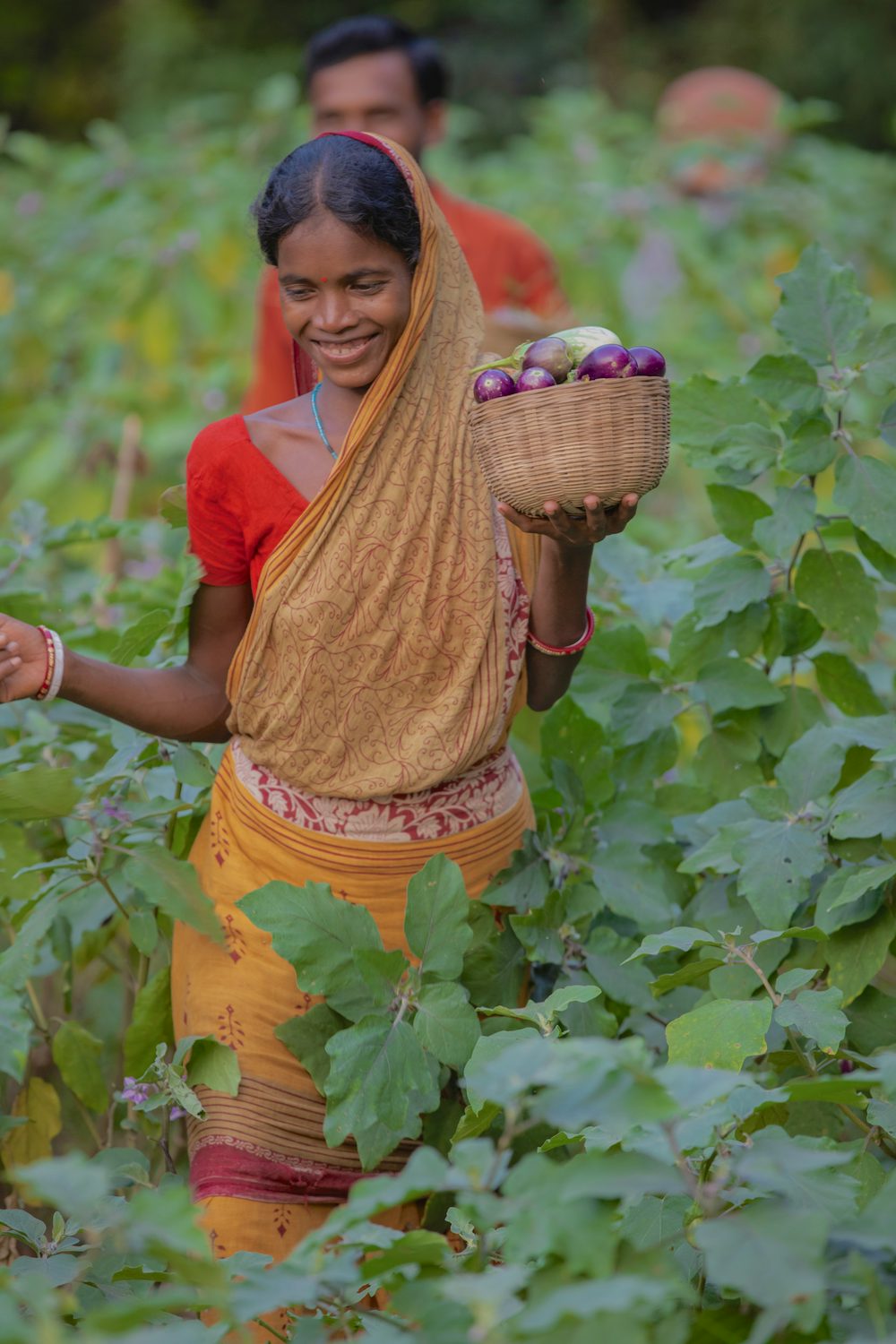
The improvement in their ability to provide food has transformed their lives. They’ve been able to have a regular income from the sale of extra vegetables that has been used to cover essential living costs as well as school fees for their daughter, 6-year-old Jyotsana, who has recently started school.
Hansda credits the kitchen garden’s success to training she received from Heifer India that has allowed her to scale up production.
Gaining a newfound understanding of nutrition has positively impacted their daily nutrition habits too, improving the kinds of meals she chooses for herself, and her young children. “I ensure a proper diet for all my family members,” she said.
The Hansda’s kitchen garden offers them food security during the pandemic. It is a source of nutrition, and also a source of hope.
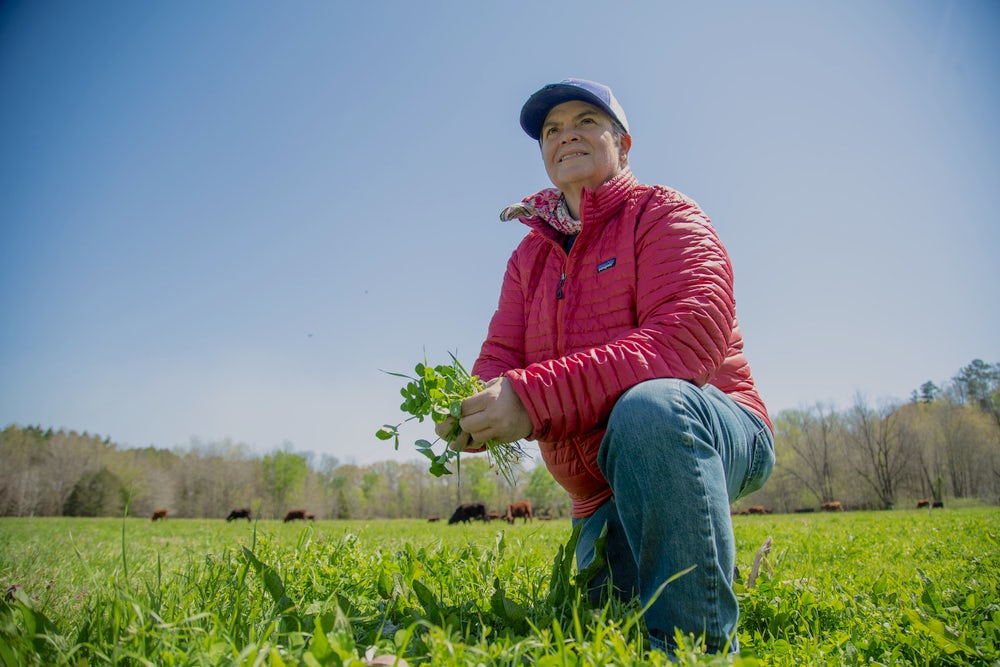
Recognized as a best-in-class agricultural institution, Heifer Ranch promotes regenerative agriculture as a means of creating jobs and making farming more sustainable for people and the environment.
Building on its long history of nurturing farmers, teaching and training, Heifer Ranch has recently become a Savory Global Network Hub.
Ranch Manager and Land Steward, Donna Kilpatrick, an accredited Savory professional and leader of Heifer Ranch’s all-women livestock team believes that lifelong learning is crucial to being a successful farmer.
During non-pandemic times, the Ranch regularly hosts farmers and agricultural workers to train them in holistic farm management techniques including planned grazing, land planning, financial planning and ecological monitoring.
“What we are doing at Heifer USA is training small-holder farmers in regenerative agriculture, then linking them to profitable markets,” said Kilpatrick.
Farmers from all over the world can join livestreams and workshops and training through Heifer USA’s YouTube channel, giving them the tools and resources to create a framework for success and achieve goals.